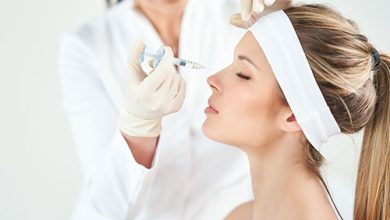What Causes Acne and How Can It Be Treated?

Acne is a common skin condition that affects people of all ages, but it’s particularly prevalent during adolescence. It can be frustrating, painful, and even impact self-esteem. Understanding the causes of acne and how it can be treated is essential for managing this condition effectively. Here’s a comprehensive guide to what triggers acne and the available treatment options.
What Causes Acne?
Acne develops when hair follicles become clogged with oil (sebum) and dead skin cells. This blockage creates an environment where bacteria can thrive, leading to inflammation and the formation of pimples, blackheads, and whiteheads. Several factors contribute to the development of acne:
Hormonal Changes: Hormonal fluctuations are one of the primary causes of acne, particularly during puberty, menstruation, pregnancy, and even menopause. During these times, the body produces more androgens, hormones that increase the production of sebum. Excess sebum can clog pores, leading to acne.
Genetics: Your genetic makeup can play a significant role in the likelihood of developing acne. If your parents had acne, you might be more prone to experiencing it as well. Genetics can influence the size and activity of your sebaceous glands and your skin’s tendency to produce excess oil.
Diet: While the connection between diet and acne is still debated, some studies suggest that certain foods, particularly those high in refined sugars and dairy products, can exacerbate acne. These foods may increase insulin levels, leading to an increase in sebum production.
Stress: Stress doesn’t directly cause acne, but it can worsen it. When you’re stressed, your body produces more cortisol, a hormone that can increase oil production in the skin, thereby exacerbating acne.
Poor Skincare Habits: Not cleansing your face regularly or using products that clog pores can contribute to acne. Over-cleansing or using harsh products can also strip the skin of its natural oils, causing it to produce even more oil to compensate, which can lead to breakouts.
Bacteria: The bacteria Propionibacterium acnes (P. acnes) naturally lives on the skin but can multiply rapidly when pores are clogged, leading to inflammation and the formation of pimples.
How Can Acne Be Treated?
Treating acne requires a tailored approach based on the severity and underlying causes. Here are some common methods:
Over-the-Counter (OTC) Treatments: For mild acne, OTC products containing ingredients like benzoyl peroxide, salicylic acid, or alpha hydroxy acids (AHAs) can be effective. These ingredients help to unclog pores, reduce inflammation, and exfoliate the skin.
Prescription Medications: For more severe cases of acne, a dermatologist may prescribe stronger treatments. These can include topical retinoids, which help to prevent clogged pores, or antibiotics to reduce bacteria and inflammation. In some cases, oral medications like isotretinoin may be recommended for severe, cystic acne.
Hormonal Treatments: For women whose acne is linked to hormonal changes, birth control pills or other hormonal therapies can help regulate the hormones that trigger excess oil production.
Lifestyle Changes: Maintaining a healthy diet, reducing stress, and following a consistent skincare routine can all help to manage acne. It’s important to use non-comedogenic (non-pore-clogging) skincare products and avoid picking at pimples, which can lead to scarring.
Professional Treatments: Dermatologists offer several in-office treatments that can help with acne, including chemical peels, laser therapy, and light therapy. These treatments can reduce the bacteria that cause acne, minimise scarring, and promote clearer skin.
Natural Remedies: Some people find relief from acne by using natural remedies like tea tree oil, aloe vera, or honey. While these remedies may not work for everyone, they can be a gentle alternative for those with sensitive skin.
Conclusion
Acne is a multifaceted condition with various causes, from hormonal changes to lifestyle factors. While it can be a persistent issue, there are numerous treatments available to manage and reduce its impact. Whether you’re dealing with mild or severe acne, the key is to find a treatment plan that works for your specific skin type and concerns. Consulting with a skin care professional can provide you with a tailored approach to achieve clearer, healthier skin.
PS: These suggestions are not provided by medical professionals. Please consult a doctor for personalised advice and treatment options





